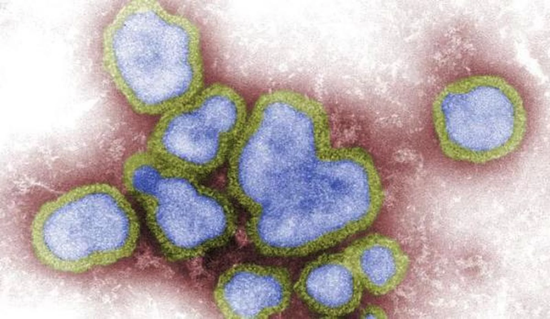
Welcome to the Clinical Care Training for Severe Acute Respiratory Infection (SARI).
A new course focused on clinical management of patients with COVID-19 was published in October 2020. Please click here to access the course, which reflects the latest technical guidance for health care workers during the COVID-19 pandemic.
Please note: These materials were launched on 06/02/2020.
Idioma: English
COVID-19
Información del curso
This course is also available in the following languages:
français - русский - Português - Bahasa Indonesia - Tiếng Việt - Español - македонски - العربية - Tetun- සිංහල - Казақ тілі
Overview: The WHO Clinical Care Training Short Course for Severe Acute Respiratory Infection (SARI) includes content on clinical management of patients with a severe acute respiratory infection.
This course is intended for clinicians who are working in intensive care units (ICUs) in low and middle-income countries and managing adult and pediatric patients with severe forms of acute respiratory infection (SARI), including severe pneumonia, acute respiratory distress syndrome (ARDS), sepsis and septic shock. It is a hands-on practical guide to be used by health care professionals involved in critical care management during outbreaks of influenza virus (seasonal) human infection due avian influenza virus (H5N1, H7N9), MERS-CoV, nCoV or other emerging respiratory viral epidemics.
Learning objectives: By the end of this course, participants should:
- Possess some of the necessary tools that can be used to care for the critically ill patient from hospital entry to hospital discharge.
Course duration: Approximately 10 hours.
Certificates: A Confirmation of Participation is available to participants to complete 90% of the course material.
Target audience: This course is intended for clinicians who are working in intensive care units (ICUs) in low and middle-income countries.
Contenido del curso
Module 1: Introduction to COVID-19 and IPC:
This module covers a clinical update on COVID-19 as of 30.01.2020, and infection prevention and control (IPC) for patients with Severe Acute Respiratory Infections (SARI).Module 2: Clinical Syndromes and Pathophysiology of Sepsis and ARDS:
This module covers clinical syndromes and the pathophysiology of Sepsis and ARDS.Module 3: Triage:
This module covers triage and early recognition of patients with SARI. It includes two role-playing scenarios.Module 4: Monitoring :
In this module, participants will learn about monitoring patients with SARI.Module 5: Diagnostics:
In this module, participants will learn about differential diagnosis, specimen collection and diagnostic tests for SARI.Module 6: Oxygen Therapy:
This module covers oxygen therapy.Module 7: Antimicrobials:
This module covers antimicrobial therapy and its modification after diagnostic test interpretation.Module 8: Sepsis:
In this module, participants will learn how to deliver targeted resuscitation for Sepsis and septic shock.Module 9: Mechanical Ventilation:
In this module, participants will learn how to deliver lung-protective ventilation for invasive mechanical ventilation for Acute Respiratory Distress Syndrome (ARDS).Module 10: Sedation:
This module covers invasive mechanical ventilation for ARDS, managing pain, agitation and delirium.Module 11: Best Practices to Prevent Complications:
This module covers the best practices to prevent complications.Module 12: Liberation from Mechanical Ventilation:
In this module, participants will learn about liberation from Mechanical Ventilation.Module 13: Quality in Critical Care:
This module covers quality in critical care.Module 14: Pandemic Preparedness and Ethical Considerations:
In this module, participants will learn about pandemic preparedness and ethical considerations.
Matricularme en este curso
Requisitos para el certificado
- Obtenga una confirmación de participación al completar al menos el 90% del material del curso.